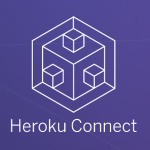About MongoDB Atlas
MongoDB Atlas is a cloud database service for applications that works with Amazon AWS, Microsoft Azure, and Google Cloud Platform. The database service seeks to comply with the most stringent data security and privacy standards while offering a reliable suite of drivers, tools, and integrations. By automating numerous database management tasks, MongoDB Atlas helps developers build apps faster with less human error.
About Heroku Connect
Heroku Connect is a data integration tool that uses bi-directional synchronization between Salesforce and Heroku Postgres to harmonize Postgres data your Salesforce information like contacts, accounts, and custom objects. Heroku connect includes a user-friendly, point-and-click interface so non-tech-savvy users can set up the service in minutes without coding or complicated configuration procedures.
Popular Use Cases
Bring all your Heroku Connect data to Amazon Redshift
Load your Heroku Connect data to Google BigQuery
ETL all your Heroku Connect data to Snowflake
Move your Heroku Connect data to MySQL
MongoDB Atlas's End Points
MongoDB Atlas Automated Features
The automated security features included in MongoDB Atlas let you monitor who has access to your data while securing your information against unwanted intrusions. Also, due to the platform's automation of mundane operational tasks — like provisioning and configuration, patching and upgrades, monitoring and alerts, advanced security automation, and disaster recovery — you don't have to be a data science expert to set up and run your databases.
MongoDB Advanced Security Automation
MongoDB Atlas provides a variety of database security layers including advanced access control, IP whitelists, in-flight data encryption through TLS/SSL, optional encryption of your file system, and network isolation through Amazon VPCs and VPC Peering.
MongoDB Atlas Built-In Replication
MongoDB Atlas offers multiple servers to provide 'always-on' availability. Even if your primary master goes down, multiple backups ensure that your system is always up and running.
MongoDB Atlas Backups and Time-Machine Recovery
The advanced backup and recovery features for MongoDB Atlas guard against data corruption. Whether the threat is from hackers or a team member's innocent mistake, you can rest easy knowing that, after a catastrophic, event you'll have a backup copy to recover your system from a specific time in the past.
MongoDB Atlas Detailed Statistics and Monitoring
MongoDB Atlas provides detailed information and statistics about your database systems. By organizing this information in numerous ways, the platform helps you understand when important changes or upgrades to your system may be necessary. Moreover, if it's time to make changes, you can provision new server instances in a flash.
MongoDB Atlas Automated Patches and Upgrades
Whether it's a new technology upgrade to improve database efficiency or a security patch to protect against a new security threat, MongoDB Atlas automatically upgrades or lets you upgrade with a single click, so you can take advantage of features as soon as they're available. Upgrades happen in a matter of minutes without any downtime required.
MongoDB Atlas Customizable Database Tools
MongoDB Atlas includes a suite of tools that allow you to select your regions, billing options, and more — allowing you to customize server instances to your desired specifications.
MongoDB Atlas Scalability
MongoDB Atlas scales up and down — or scales out horizontally through automatic sharding — according to the needs of your company with zero application downtime. This allows you to grow beyond the limitations of one server without making your application too complex. Moreover, the platform's automatic balancing keeps information equally distributed across multiple replica sets as your data volumes grow, or as your cluster increases or decreases.
Heroku Connect's End Points
Heroku Connect Synchronization of Apps Across Heroku and Salesforce
Heroku Connect allows you to build apps with open source stacks, natively integrate the apps with Postgres, and directly sync them with Salesforce. By integrating your Salesforce data with Heroku Postgres, it's easy to combine the power of the Lightning Platform with Heroku. Heroku Connect makes the process of building apps that bring your data and processes to your users as easy as coding in SQL.
Heroku Connect External Objects
Heroku Connect External Objects let you make your Heroku Postgres database information available inside your Salesforce deployment. This empowers you to synchronize your information across both platforms as you create, read, update, and delete data. By creating sophisticated applications inside Heroku and making the app data available to your Salesforce processes, you'll present a seamless experience in Salesforce, while all of your data stays inside Heroku Postgres. Moreover, configuring Heroku-Salesforce integrations for data pertaining to apps, sensors, customers, and products is a simple, point-and-click process that doesn't require any coding skills. Heroku External Objects combined with Salesforce Connect makes it easy to create a seamless experience across all of your business systems.
Heroku Connect Data Security Compliance
Heroku Shield Connect supports the development of applications that share sensitive data with Salesforce while complying with the strictest data security standards. Safely integrate CRM data, Protected Health Information (PHI), Personally Identifiable Information (PII), contact information, account data, and custom objects between Heroku apps and Salesforce. Heroku Shield Connect provides an easy pathway for building advanced applications that need to adhere to the most complicated data security regulations, including HIPAA compliance.
Heroku Connect Easy Application Development and Scaling
Through its compatibility with the most popular stacks and programming languages, Heroku Connect facilitates easy application development. Its add-on ecosystem includes your favorite development tools and databases (like New Relic, Mongo, and Redis) so you can use them with the applications you're creating. Through Heroku's proven infrastructure, which currently supports 26 billion daily transactions for massive consumer websites (such as Upworthy and Bonobo) virtually limitless scaling is available for high volume applications.








